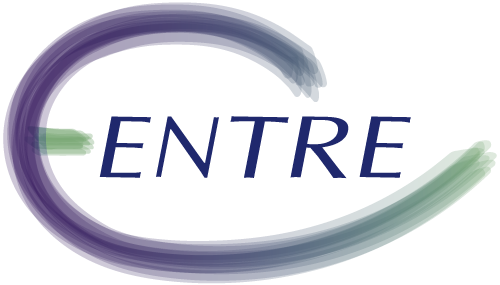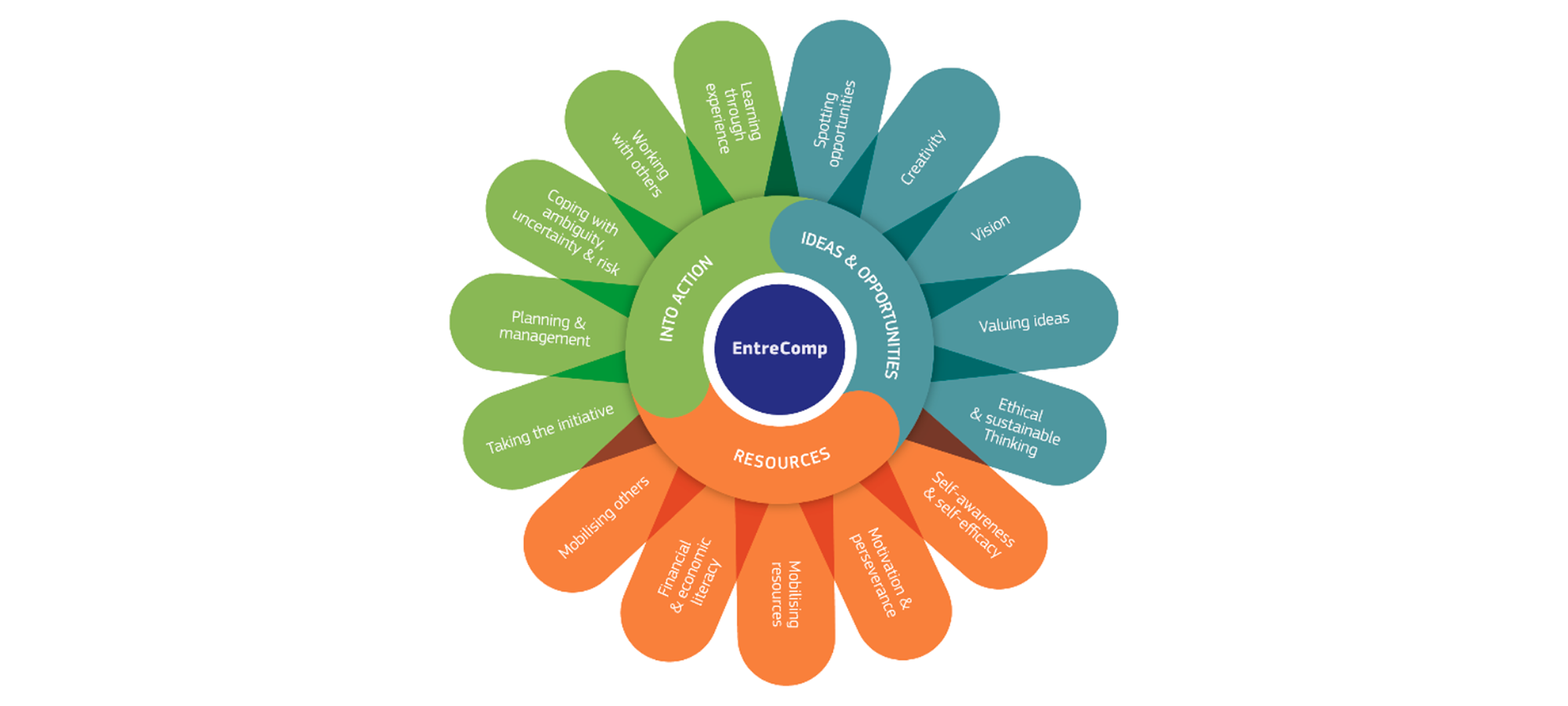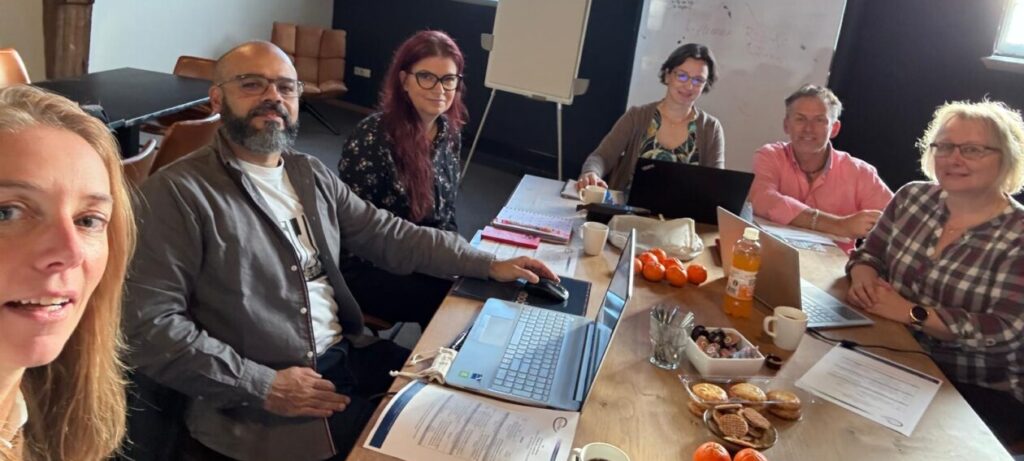Entrepreneurship today goes far beyond starting a business: it is about turning ideas into action that create value for others. The European Commission’s EntreComp (The Entrepreneurship Competence Framework) provides a shared language to describe what it means to be entrepreneurial. It identifies 15 key competences across three areas: Ideas and Opportunities, Resources, and Into Action. Together, these competences define entrepreneurship as a transversal skill relevant to every aspect of life: from personal development and active citizenship to employment and enterprise creation.
EntreComp serves as a foundation for designing education, training, and self-assessment tools that nurture entrepreneurial mindsets. However, translating these competences into personal growth requires more than knowledge: it requires reflection, feedback, and guided practice. This is where coaching plays a crucial role.
Coaching empowers learners to internalize EntreComp competences by fostering self-awareness, motivation, and perseverance: key elements of the “Resources” area. Through questioning, active listening, and constructive feedback, coaches help learners recognize opportunities, clarify goals, and manage uncertainty. They create a safe environment where experimentation, failure, and learning are part of the process; aligning perfectly with EntreComp’s emphasis on learning through experience.
In the VET (Vocational Education and Training) context, coaching bridges the gap between theory and practice. It supports teachers in guiding students not only to “know about” entrepreneurship but to act entrepreneurially: to identify opportunities, mobilize resources, and take initiative responsibly.
By integrating coaching methods into entrepreneurial education, we can bring the EntreComp framework to life. Learners don’t just gain competences; they develop confidence, creativity, and resilience: the mindset that turns ideas into sustainable value for their communities and beyond.




